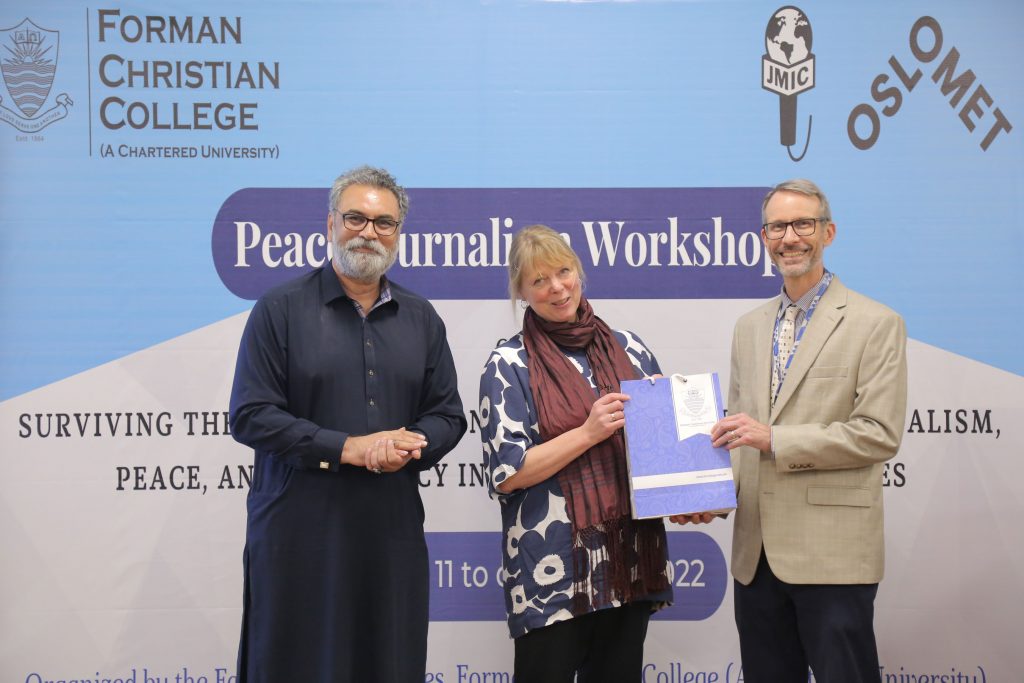Social media and mediated societies in transition
The Faculty of Humanities, Forman Christian College (A Chartered University) (FCCU), in collaboration with the Department of Journalism and Media Studies and Journalism and Media International Centre (JMIC) at Oslo Metropolitan University (OsloMet) in Norway, hosted a three-day workshop on “Peace Journalism” on the topic of “Surviving the social media onslaught: Mainstream journalism, peace, and democracy in the transitional societies” in Lahore in Pakistan 11 – 13 October 2022.
If we agree with Marshal McLuhan in the slightest possible way, the advent of social media ushers is the dawn of a new phase in human civilisation. The rise of social media has taken the world by storm: online aggression, polarisation in human societies, populism, fake news, alternative truth, and many challenges outweigh the original euphoria of the arrival of the new saviour. There is no doubt about the positive influence of the social media: interactive discourse patterns, freedom to express ones views without any dependence on external gate keepers, voices for the voiceless, representation of the marginalised. All these but seem to be a lost cause amid the chaos created by echo chamber mentality through creating communities of consent. The public sphere is lost to the populist and the ‘unfinished project of modernity’ seems falling apart.
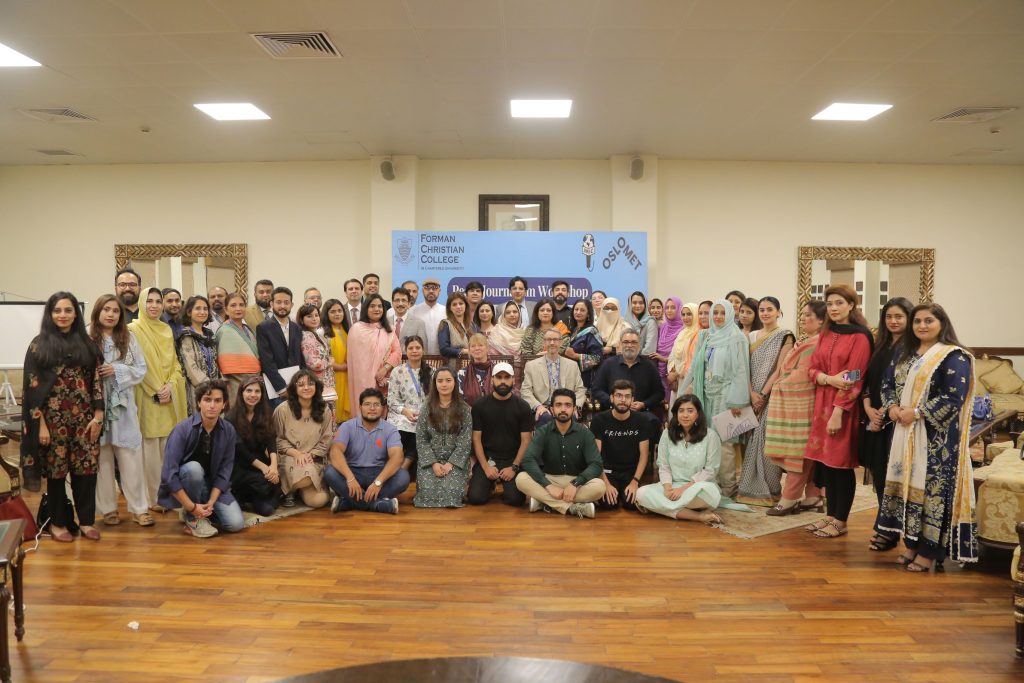
The three day peace journalism workshop on Surviving the Social Media Onslaught: Mainstream Journalism, Peace and Democracy in Transitional Societies was organised at Forman Christian College University, Lahore in collaboration with Journalism and Media International Center, OsloMet Norway from October 11 to 13, 2022. Head of the department of Journalism & Media Studies at OsloMet, Anne Hege Simonsen also participated in the Lahore workshop.
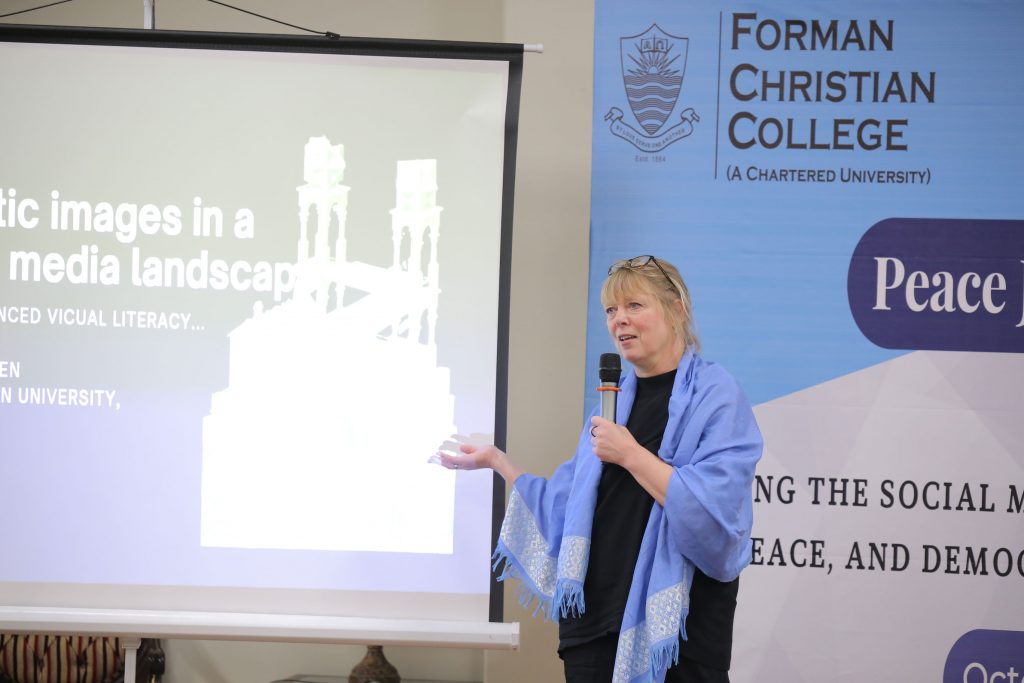
77 participants registered through a Google link, 51 of these were invited, while 45 successfully completed the workshop to win their certificates of participation. All universities offering mass communication degrees in Lahore were represented in the workshop. Participants from Multan in southern Punjab, Khyber Pakhtunkhwa (Peshawar and Swat), Karachi, and Islamabad also participated in the activity. Working journalists from Lahore and Peshawar were also among the participants. The workshop program was organised around four themes: theoretical concepts of peace journalism within the context of social media and preservation of democracy, practical journalists’ insights into the working of the social media dominated media structures in Pakistan, technological aspects of social media platforms’ perils and potentials, expertise from fields outside academic and practical journalism.
All the four thematic streams contributed to the understanding of the working of mediated societies in transition. The academic presentations of research projects gave an insight into the working of the research structures in Pakistan. These were mutually beneficial for the presenters and the audiences, the former getting valuable feedback from a well versed audience, while the latter having access to the latest developments.
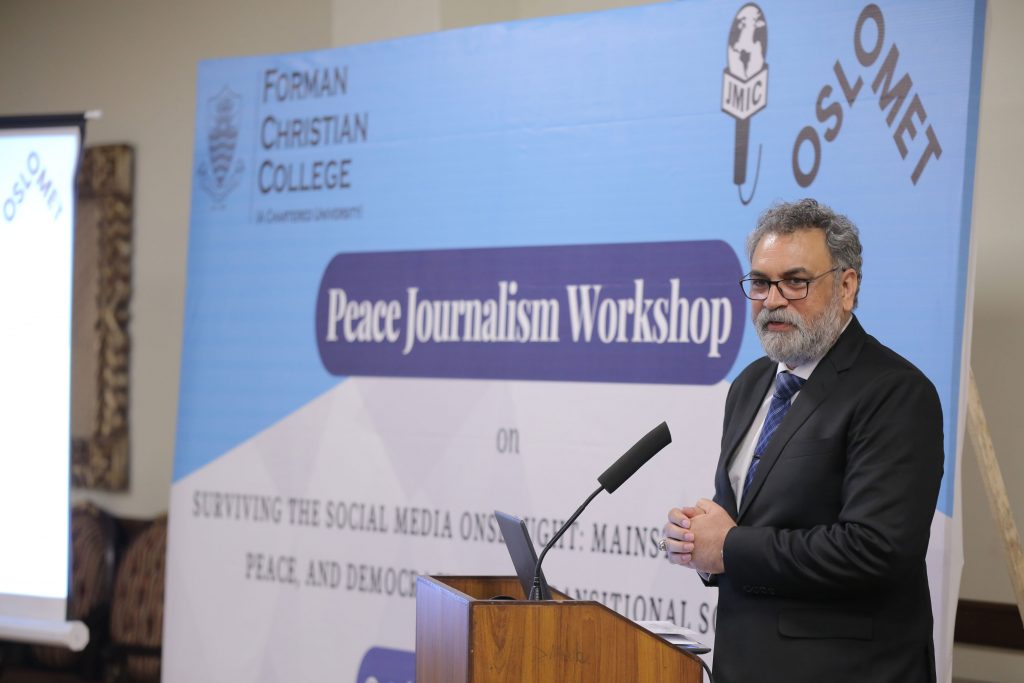
The theoretical submissions were balanced by the experiences from the field. Working journalists gave their views on the practical impact of social media on their everyday working in the media. Views from outside the realm of peace studies and journalism came handy through inputs from counter insurgency and counter terrorism perspectives. It also made clear the distinction between the former and the latter two, peace studies being a social process, believing in the goodness and equality of humankind, while anything counter (insurgency or terrorism) serving as strategic responses by political structures used by state apparatuses, resting on the premise of a belligerent other within the same society.
Last but not least was the discussions on the ethical pitfalls in times of war. Truth being the first casualty of any aggression, leaving no victors. The presentation on visual literacy helped the audience to identify their own biases to move out of their personal utopias and become more self-reflective. The discussion on public sphere within the context of Juergen Habermas’ latest book were the highlight of how theoretical underpinnings could be used to practically develop a discourse.
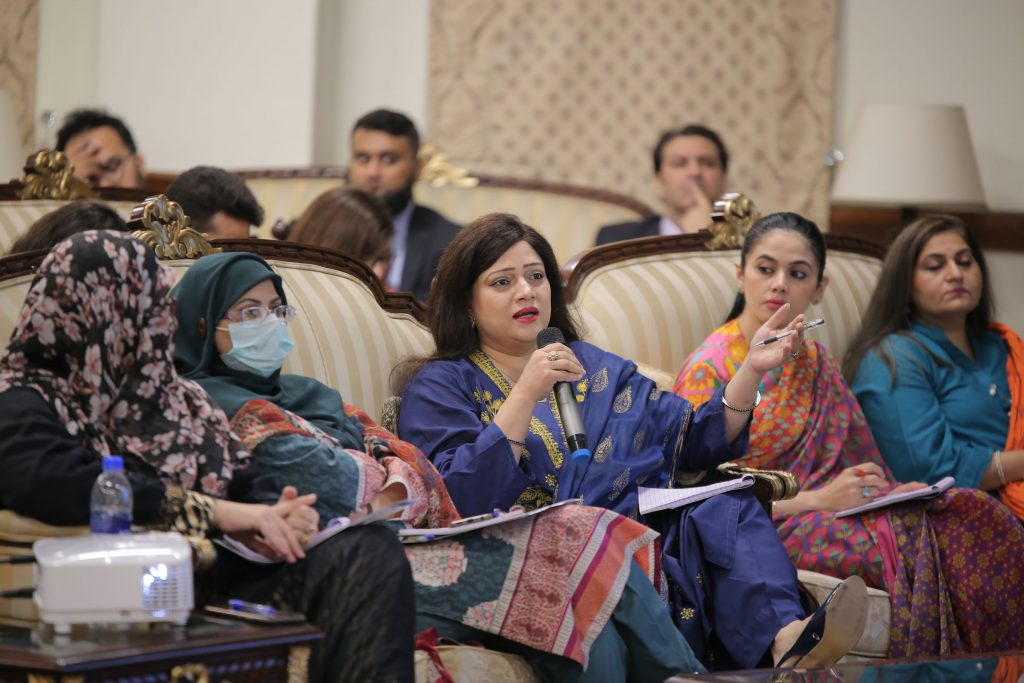
Like all things human, the workshop deepened our understanding of the new media, the challenges and potentials it offers, and how to harness these independent energies for the betterments of human societies. The possibility of a global and shared idea of humanity is very much in sight. It is a vague path with no guarantees or milestones. The only way to explore is to keep moving forward and digging deeper to unearth the best possible option for peace and democracy through our feeble capacities as journalists and educationists.
